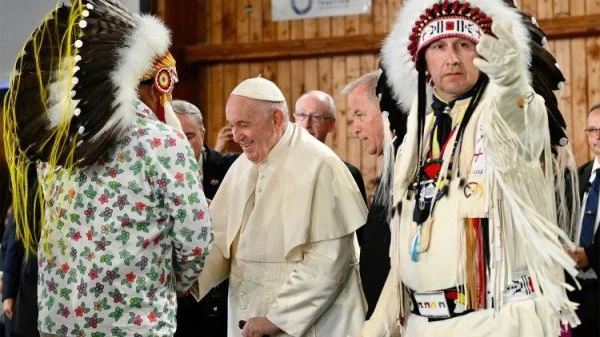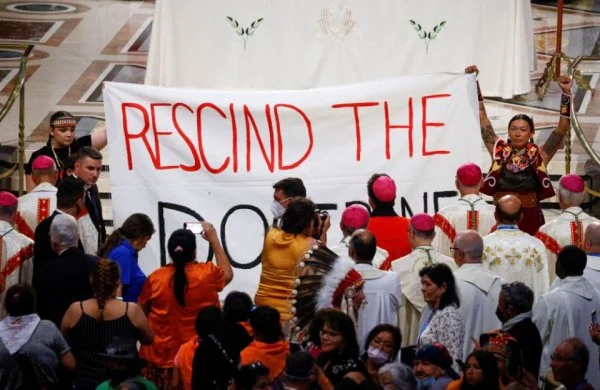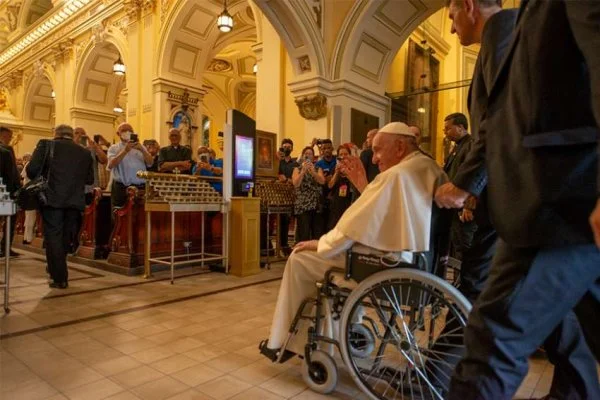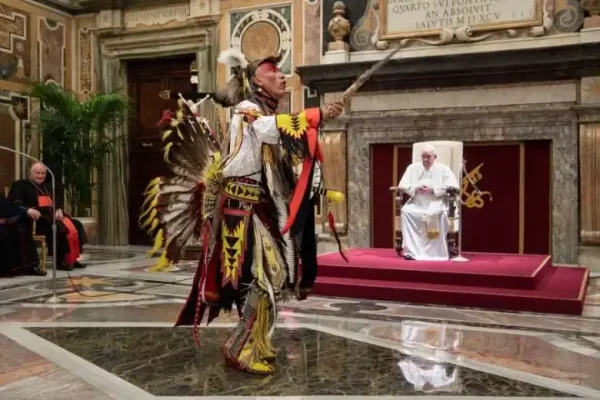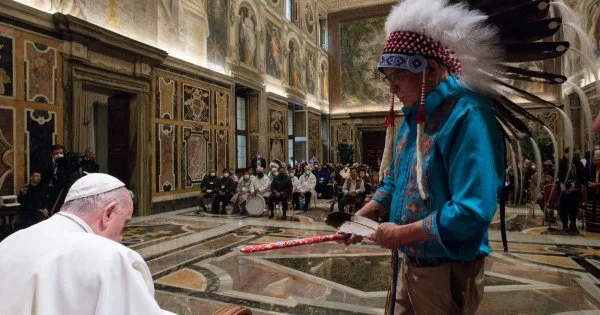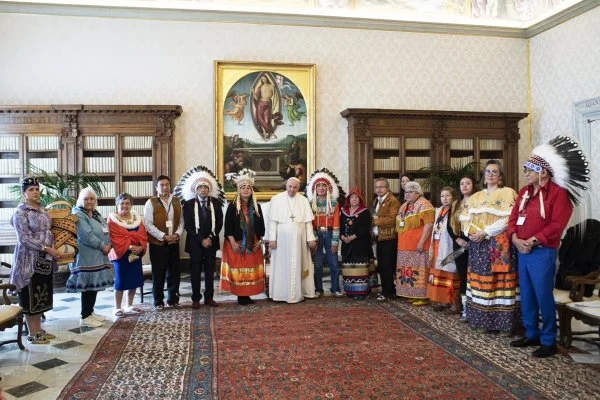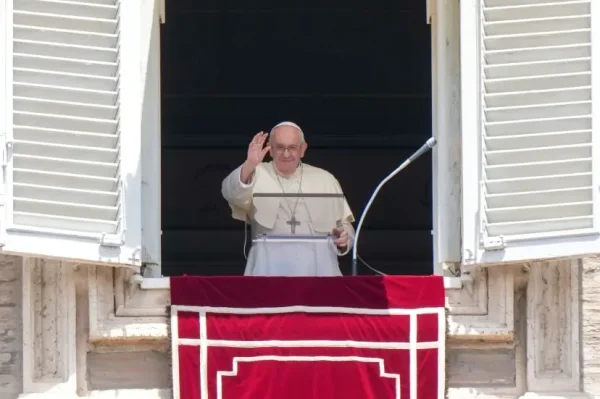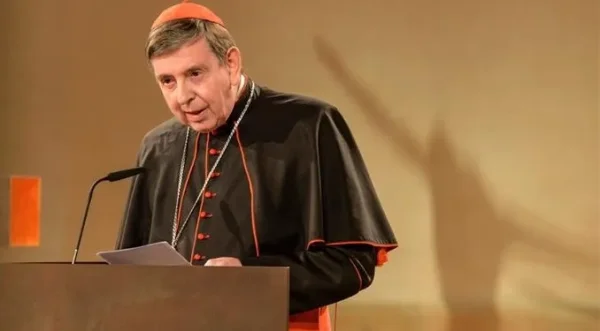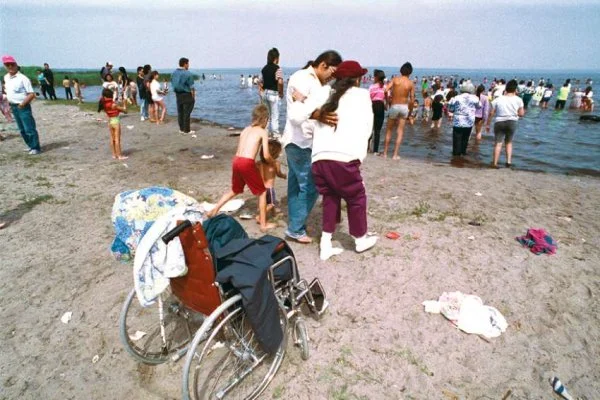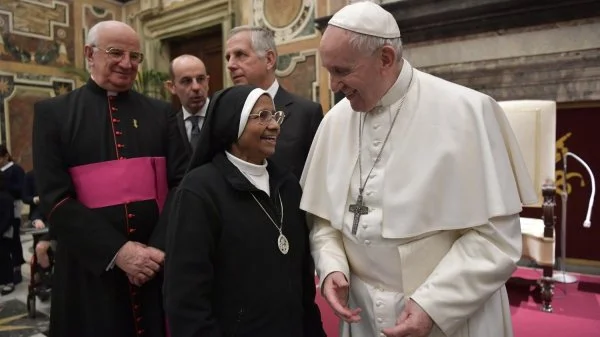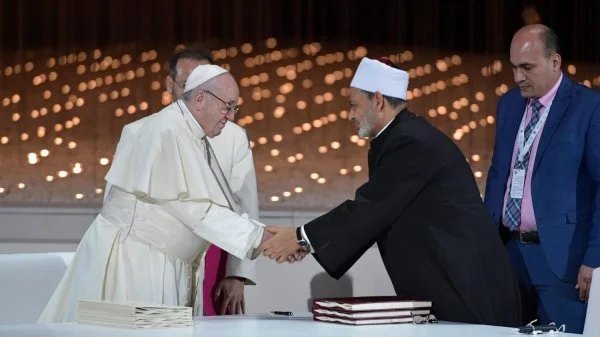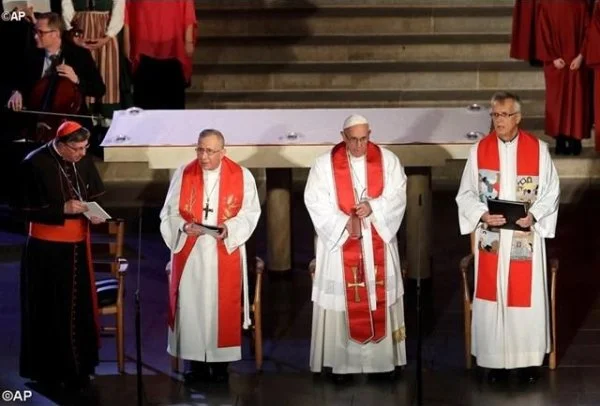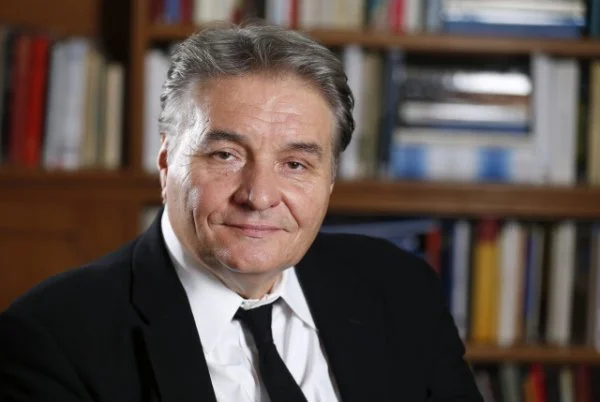- Français
- |
- Booklist
- |
- Week of Prayer
- |
- Links
- Areopagus - a forum for dialogue
- Academic journals
- Acronyms
- Bible tools
- Bibliographies
- Booksellers and publishers
- Churches
- Canadian church headquarters
- Directory of Saskatchewan churches
- Retreat centres
- Saskatchewan church and non-profit agencies
- Ecumenism.net Denominational links
- Anabaptist & Mennonite
- Anglican
- Baptist
- Evangelical
- Independent episcopal
- Lutheran
- Methodist, Wesleyan, and Holiness
- Miscellaneous
- Mormon
- Orthodox (Eastern & Oriental)
- Para-church ministries
- Pentecostal / charismatic
- Presbyterian & Reformed
- Quaker (Society of Friends)
- Roman & Eastern Catholic
- United and uniting
- Documents of Ecumenical Interest
- Ecumenical agencies
- Ecumenical Booklist
- Ecumenical Dialogues
- Glossary
- Human rights
- Inter-religious links
- Justice & peace
- Lectionaries
- Religious news services
- Resource pages
- Search Ecumenism.Net
- |
- Documents
- Ancient & Medieval texts
- Ecumenical Dialogues
- Interreligious
- Anabaptist & Mennonite
- Anglican
- Evangelical
- Lutheran
- Orthodox
- Reformed & Presbyterian
- Roman & Eastern Catholic
- United & Uniting
- Miscellaneous churches
- Canadian Council of Churches (CCC)
- Conference of European Churches (CEC)
- Interchurch Families International Network (IFIN)
- National Council of Churches in Australia (NCCA)
- Lausanne Committee for World Evangelism (LCWE)
- World Council of Churches (WCC)
- Other ecumenical documents
Church traditions
Documents from ecumenical agencies
- |
- Dialogues
- Adventist-Reformed
- African Instituted Churches-Reformed
- Anglican-Lutheran
- Anglican-Orthodox
- Anglican-Reformed
- Anglican-Roman Catholic
- Anglican-United/Uniting
- Baptist-Reformed
- Disciples of Christ-Reformed
- Disciples of Christ-Roman Catholic
- Evangelical-Roman Catholic
- Lutheran-Mennonite
- Lutheran-Mennonite-Roman Catholic
- Lutheran-Reformed
- Lutheran-Roman Catholic
- Mennonite-Reformed
- Mennonite-Roman Catholic
- Methodist-Reformed
- Methodist-Roman Catholic
- Oriental Orthodox-Reformed
- Orthodox-Reformed
- Orthodox-Roman Catholic
- Pentecostal-Reformed
- Prague Consultations
- REC-WARC Consultations
- Roman Catholic-Lutheran-Reformed
- Roman Catholic-Reformed
- Roman Catholic-United Church of Canada
- |
- Quick links
- Canadian Centre for Ecumenism
- Canadian Council of Churches
- Ecumenical Shared Ministries
- Ecumenism in Canada
- Interchurch Families International Network
- International Anglican-Roman Catholic Commission for Unity and Mission
- Kairos: Canadian Ecumenical Justice Initiatives
- North American Academy of Ecumenists
- Prairie Centre for Ecumenism
- Réseau œcuménique justice et paix
- Week of Prayer for Christian Unity
- Women's Interchurch Council of Canada
- World Council of Churches
- |
- Archives
- |
- About us
Archive for tag: Pope Francis
Archive pour tag : Pope Francis
The heart of Pope Francis’ “penitential pilgrimage” to Canada has focused on his personal closeness to indigenous peoples and his request for forgiveness for the disasters wrought by the colonial mentality that sought to eradicate traditional cultures, including through the dramatic experiment of residential schools desired by the government and run by Christian churches.
Encounters with indigenous peoples marked every stage of the trip and were quite moving. The understandable focus on the suffering endured by indigenous people and the journey of reconciliation undertaken have overshadowed some valuable insights scattered throughout Pope Francis’ speeches, which offer useful paths for evangelization today in every corner on earth.
After saying he felt ashamed of what happened when believers “became worldly, and rather than fostering reconciliation, they imposed their own cultural models,” the Pope went on to emphasize that “this attitude dies hard, also from the religious standpoint.” He thus shifted his reflection to the present day, drawing on the events of the past. That is, it is a mentality that is still present.
… Read more » … lire la suite »

 Permanent link: ecumenism.net/?p=12328
Permanent link: ecumenism.net/?p=12328
Categories: Vatican News • In this article: evangelism/evangelization, papal visit, Pope Francis

 Lien permanente : ecumenism.net/?p=12328
Lien permanente : ecumenism.net/?p=12328
Catégorie : Vatican News • Dans cet article : evangelism/evangelization, papal visit, Pope Francis
In a brief protest at a papal Mass in Canada, Indigenous women unfurled a banner that said, “Rescind the Doctrine.”
The protest July 28 was a momentary but graphic reminder of how, when representatives of Canada’s First Nations, Métis and Inuit communities met Pope Francis at the Vatican in March and April, they asked him specifically for a formal repudiation of the so-called “Doctrine of Discovery.”
The phrase describes a collection of papal teachings, beginning in the 14th century, that blessed the efforts of explorers to colonize and claim the lands of any people who were not Christian, placing both the land and the people under the sovereignty of European Christian rulers.
The loss of the land, language, culture and spirituality of the Indigenous peoples of Canada and the foundation of the residential school system all can be traced to the doctrine, Indigenous leaders told reporters after their meetings with the pope.
… Read more » … lire la suite »

 Permanent link: ecumenism.net/?p=12324
Permanent link: ecumenism.net/?p=12324
Categories: CNS • In this article: Doctrine of Discovery, Indigenous peoples, papal visit, Pope Francis

 Lien permanente : ecumenism.net/?p=12324
Lien permanente : ecumenism.net/?p=12324
Catégorie : CNS • Dans cet article : Doctrine of Discovery, Indigenous peoples, papal visit, Pope Francis
Meeting Indigenous survivors of residential schools in Canada, Pope Francis entrusted them and the journey of truth, healing and reconciliation to three women: St. Anne, Mary and St. Kateri Tekakwitha.
“These women can help us to come together and start to weave anew a reconciliation that can uphold the rights of the most vulnerable in our midst and look at history without resentment or forgetfulness,” the pope said July 29, his last morning in Canada.
Before heading to the airport for a three-hour flight to Iqaluit, Nunavut, in the Canadian Arctic, Pope Francis met with two dozen survivors of residential schools from across Eastern Canada. Organizers said they included people from the Algonquin, Mohawk, Cree, Innu and Mi’kmaq nations.
… Read more » … lire la suite »

 Permanent link: ecumenism.net/?p=12315
Permanent link: ecumenism.net/?p=12315
Categories: CNS • In this article: Indigenous peoples, papal visit, Pope Francis, Reconciliation

 Lien permanente : ecumenism.net/?p=12315
Lien permanente : ecumenism.net/?p=12315
Catégorie : CNS • Dans cet article : Indigenous peoples, papal visit, Pope Francis, Reconciliation
On the final day of Pope Francis’ pilgrimage of penance, one of healing and reconciliation, he says it is he who has been “enriched” by the experience.
“Now that I am nearing the end of this intense pilgrimage, I want to tell you that although I came with these desires (for healing and reconciliation), I am now returning home greatly enriched,” the Pope told a gathering of some two dozen residential school survivors at the residence of Cardinal Gerald Lacroix in Quebec City this morning. Reporters were present for the beginning of the meeting but were asked to leave following the formal speeches to allow the Pope to speak in private with the survivors.
“I bear in my heart the incomparable treasure of all those individuals and peoples who have left a mark on me; the faces, smiles and messages that remain with me; the unforgettable stories and natural beauties; the sounds, colours and emotions that touched me deeply.”
… Read more » … lire la suite »

 Permanent link: ecumenism.net/?p=12313
Permanent link: ecumenism.net/?p=12313
Categories: Catholic Register • In this article: Indigenous peoples, papal visit, Pope Francis

 Lien permanente : ecumenism.net/?p=12313
Lien permanente : ecumenism.net/?p=12313
Catégorie : Catholic Register • Dans cet article : Indigenous peoples, papal visit, Pope Francis
If Canadian Catholics were looking for a roadmap to reconciliation, Pope Francis laid it out for them at a vespers prayer service in Quebec City’s exquisite Notre Dame Basilica Cathedral on a rainy Thursday evening.
As is typical of Pope Francis’ preaching, he laid it out in three parts — three challenges to the Church in Canada. Canada’s Catholics must find a way to make Jesus known, become credible witnesses to the Gospel and seek out genuine fraternity with others. None of those three priorities for a reconciling Church has anything to do with a negative, judgmental, condemnatory, defensive, narrow, navel-gazing version of Christian life, he said.
… Read more » … lire la suite »

 Permanent link: ecumenism.net/?p=12317
Permanent link: ecumenism.net/?p=12317
Categories: Catholic Register • In this article: Indigenous peoples, papal visit, Pope Francis, Reconciliation

 Lien permanente : ecumenism.net/?p=12317
Lien permanente : ecumenism.net/?p=12317
Catégorie : Catholic Register • Dans cet article : Indigenous peoples, papal visit, Pope Francis, Reconciliation
In the face of sin and failure, the temptation to wallow in despair and do nothing comes from the devil, Pope Francis said on Thursday.
While commentators, politicians and survivors discussed whether Pope Francis’s apology for the Catholic Church’s role in running residential schools was enough, the Pope insisted that reconciliation requires faith, action and the courage to move forward.
“The enemy wants to paralyse us with grief and remorse, to convince us that nothing else can be done, that it is hopeless to try to find a way to start over,” he said during Mass at the National Shrine of Sainte-Anne-de-Beaupré.
… Read more » … lire la suite »

 Permanent link: ecumenism.net/?p=12354
Permanent link: ecumenism.net/?p=12354
Categories: CNS • In this article: apologies, papal visit, Pope Francis, Reconciliation, Residential Schools

 Lien permanente : ecumenism.net/?p=12354
Lien permanente : ecumenism.net/?p=12354
Catégorie : CNS • Dans cet article : apologies, papal visit, Pope Francis, Reconciliation, Residential Schools
When busloads of residential school survivors, elders, knowledge keepers and youth descend on Edmonton and Quebec City to be present as Pope Francis walks on his “penitential pilgrimage,” Cynthia Bunn will be among them. But she didn’t want to be.
The third-generation residential school survivor from Sagkeen First Nation had to be persuaded by St. Boniface Archbishop Albert LeGatt. A member of the parish council at St. Alexander Church, Bunn initially agreed only to co-ordinate Sagkeen’s contribution to the 56 survivors, knowledge keepers and their care-givers from seven First Nations going from St. Boniface to Edmonton. But the archbishop dropped in on Bunn to plead with her.
“But you’re the co-ordinator. I need you there,” Bunn recalled LeGatt saying. “So I reluctantly decided to go.”
… Read more » … lire la suite »

 Permanent link: ecumenism.net/?p=12300
Permanent link: ecumenism.net/?p=12300
Categories: Catholic Register • In this article: Canada, Indigenous peoples, papal visit, Pope Francis, Reconciliation

 Lien permanente : ecumenism.net/?p=12300
Lien permanente : ecumenism.net/?p=12300
Catégorie : Catholic Register • Dans cet article : Canada, Indigenous peoples, papal visit, Pope Francis, Reconciliation
Pope Francis’ July trip to Canada was born out of his meetings with the nations’ Indigenous people and was planned around encounters with them, and if the pope’s words “have value elsewhere,” like throughout the Americas, all the better, said the director of the Vatican press office.
Matteo Bruni, director of the Vatican press office, briefed reporters July 20 about details of the pope’s visit to Canada July 24-29. He said the pope planned to deliver his nine speeches and homilies in Spanish during the trip.
Asked if the choice of Spanish was meant to send a message to other Indigenous peoples of North and South America, who often suffered the same forms of colonization, Bruni said Pope Francis would be speaking to the people he met, but he also knows that his words can offer solace to other Indigenous people and a challenge to the broader society.
… Read more » … lire la suite »

 Permanent link: ecumenism.net/?p=12270
Permanent link: ecumenism.net/?p=12270
Categories: CNS • In this article: Indigenous peoples, papal visit, Pope Francis, Reconciliation

 Lien permanente : ecumenism.net/?p=12270
Lien permanente : ecumenism.net/?p=12270
Catégorie : CNS • Dans cet article : Indigenous peoples, papal visit, Pope Francis, Reconciliation
In the days between March 28 and April 1 of this year, a delegation of representatives of the Indigenous peoples of Canada traveled to Rome with some of their bishops for several meetings with Pope Francis. He promised to travel personally to Canada later this summer to continue the dialogue in their “Indigenous territories.”
During the concluding meeting, the pope said, “it is my hope that our meetings during these days will point out new paths to be pursued together, will instill courage and strength, and lead to greater commitment on the local level. Any truly effective process of healing requires concrete actions. In a fraternal spirit, I encourage the Bishops and the Catholic community to continue taking steps toward the transparent search for truth and to foster healing and reconciliation. These steps are part of a journey that can favor the rediscovery and revitalization of your culture, while helping the Church to grow in love, respect and specific attention to your authentic traditions. I wish to tell you that the Church stands beside you and wants to continue journeying with you. Dialogue is the key to knowledge and sharing, and the Bishops of Canada have clearly stated their commitment to continue advancing together with you on a renewed, constructive, fruitful path, where encounters and shared projects will be of great help.”[1]
In these pages we will attempt to briefly outline the context of the journey of truth and reconciliation with the Indigenous peoples of Canada, in which the pope is intensely engaged, alongside the Canadian Church.
… Read more » … lire la suite »

 Permanent link: ecumenism.net/?p=12255
Permanent link: ecumenism.net/?p=12255
Categories: News, Opinion • In this article: apologies, Canada, Indigenous peoples, papal visit, Pope Francis, Reconciliation

 Lien permanente : ecumenism.net/?p=12255
Lien permanente : ecumenism.net/?p=12255
Catégorie : News, Opinion • Dans cet article : apologies, Canada, Indigenous peoples, papal visit, Pope Francis, Reconciliation
Asking for prayers ahead of his visit to Canada July 24-29, Pope Francis described the trip as a “penitential pilgrimage” as part of a commitment to healing and reconciliation with the country’s Indigenous people.
“Unfortunately, in Canada, many Christians, including some members of religious institutes, contributed to the policies of cultural assimilation that, in the past, have severely harmed native communities in various ways,” the pope said July 17, referring particularly to the involvement of dioceses and religious orders in running residential schools.
From the 1870s to the 1990s, the Canadian government, usually in partnership with Christian churches, operated a residential school system to which over 150,000 First Nation, Métis and Inuit students were sent. Their language and customs were banned, and they often suffered malnourishment and physical, emotional and sexual abuse.
… Read more » … lire la suite »

 Permanent link: ecumenism.net/?p=12266
Permanent link: ecumenism.net/?p=12266
Categories: CNS • In this article: Canada, Indigenous peoples, papal visit, Pope Francis, Reconciliation

 Lien permanente : ecumenism.net/?p=12266
Lien permanente : ecumenism.net/?p=12266
Catégorie : CNS • Dans cet article : Canada, Indigenous peoples, papal visit, Pope Francis, Reconciliation
Ten days after saying he would name two women to the group that helps him choose bishops, Pope Francis appointed three women to the office.
The Vatican announced July 13 that the pope had named 14 new members of the Dicastery for Bishops.
For the first time ever, the members include women: Sister Raffaella Petrini, a member of the Franciscan Sisters of the Eucharist, who is secretary-general of the office governing Vatican City State; French Salesian Sister Yvonne Reungoat, former superior general of the order; and Maria Lia Zervino, an Argentine who is president of the World Union of Catholic Women’s Organizations.
The dicastery is led by Canadian Cardinal Marc Ouellet and is responsible for helping the pope choose bishops for Latin-rite dioceses outside of the church’s mission territories. Members meet twice a month to review dossiers submitted by Vatican nuncios about potential candidates and to vote on the names they recommend to the pope.
… Read more » … lire la suite »

 Permanent link: ecumenism.net/?p=12105
Permanent link: ecumenism.net/?p=12105
Categories: CNS • In this article: bishops, Pope Francis, Vatican, women

 Lien permanente : ecumenism.net/?p=12105
Lien permanente : ecumenism.net/?p=12105
Catégorie : CNS • Dans cet article : bishops, Pope Francis, Vatican, women
Pope Francis said he plans to meet with Russian Orthodox Patriarch Kirill in September at an interreligious meeting in Kazakhstan. The pope confirmed the meeting in an interview that aired in the United States July 11 on Univision, the Spanish-language network. “We are going to meet in Kazakhstan in September because there is a religious meeting” there that both have promised to attend, he said.
Although the Vatican has not officially announced the visit, Kazakh authorities said the pope confirmed his participation at the Congress of World and Traditional Religions during a Zoom meeting in April with President Kassym-Jomart Tokayev. The interreligious meeting will take place in the capital city, Nur-Sultan, Sept. 14-15.
Despite their opposing views on Russia’s invasion of Ukraine, the pope told Univision that he has “a good relationship” with the Russian patriarch. However, he said, “it is evident that his position is conditioned by his homeland in some way; which is not to say that he is an indecent man. No; God knows each person’s moral responsibilities in the depth of their hearts.”
… Read more » … lire la suite »

 Permanent link: ecumenism.net/?p=12101
Permanent link: ecumenism.net/?p=12101
Categories: CNS • In this article: Patriarch Kirill, Pope Francis

 Lien permanente : ecumenism.net/?p=12101
Lien permanente : ecumenism.net/?p=12101
Catégorie : CNS • Dans cet article : Patriarch Kirill, Pope Francis
The care of the environment and the fight against climate change is not a lofty goal for humanity but a moral imperative, Pope Francis said.
The worsening climate crisis can no longer be ignored, and it is up to all human beings, who were entrusted by God as “stewards of his gift of his creation,” to act, the pope said in a message July 13 to participants at a Vatican conference on climate change.
“Care for our common home, even apart from considerations of the effects of climate change, is not simply a utilitarian endeavour but a moral obligation for all men and women as children of God,” the pope said. “With this in mind, each of us must ask: ‘What kind of world do we want for ourselves and for those who will come after us?’”
The July 13-14 conference, titled “Resilience of People and Ecosystems under Climate Stress,” was sponsored by the Pontifical Academy of Sciences.
According to the academy’s website, the conference aimed to “bring researchers, policymakers and faith leaders together to understand the scientific and societal challenges of climate change and develop solutions for enabling resilient people and resilient ecosystems.”
… Read more » … lire la suite »

 Permanent link: ecumenism.net/?p=12103
Permanent link: ecumenism.net/?p=12103
Categories: CNS • In this article: climate change, Pope Francis

 Lien permanente : ecumenism.net/?p=12103
Lien permanente : ecumenism.net/?p=12103
Catégorie : CNS • Dans cet article : climate change, Pope Francis
Interreligious dialogue is key to preventing “the extremism that, sadly, is a pathology that can appear also in religions,” Pope Francis said in a message to members of a Jewish group engaged in dialogue for more than 50 years.
The pope had been scheduled to meet June 30 with members of the International Jewish Committee on Interreligious Consultations, but the Vatican press office said “a recurrence of knee pain” prevented him from doing so.
Instead, the pope gave the group his prepared remarks.
“Interreligious dialogue is a sign of our times and, I would say, a providential sign, in the sense that God himself, in his wise plan, has inspired, in religious leaders and in many others, the desire to encounter and come to know one another in a way respectful of religious differences,” the pope wrote to the group.
Dialogue, he said, “is a privileged path to the growth of fraternity and peace in our world.”
… Read more » … lire la suite »

 Permanent link: ecumenism.net/?p=11955
Permanent link: ecumenism.net/?p=11955
Categories: CNS • In this article: IJCIC, Jewish-Christian relations, Pope Francis

 Lien permanente : ecumenism.net/?p=11955
Lien permanente : ecumenism.net/?p=11955
Catégorie : CNS • Dans cet article : IJCIC, Jewish-Christian relations, Pope Francis
The “sense of mystery” and awe Catholics should experience at Mass is not one prompted by Latin or by “creative” elements added to the celebration, but by an awareness of sacrifice of Christ and his real presence in the Eucharist, Pope Francis said.
“Beauty, just like truth, always engenders wonder, and when these are referred to the mystery of God, they lead to adoration,” he wrote in an apostolic letter “on the liturgical formation of the people of God.”
Titled “Desiderio Desideravi” (“I have earnestly desired”), the letter was released June 29, the feast of Sts. Peter and Paul. The title comes from Luke 22:15 when, before the Last Supper, Jesus tells his disciples, “I have earnestly desired to eat this Passover with you before I suffer.”
In the letter, Pope Francis insisted that Catholics need to better understand the liturgical reform of the Second Vatican Council and its goal of promoting the “full, conscious, active and fruitful celebration” of the Mass.
“With this letter I simply want to invite the whole church to rediscover, to safeguard and to live the truth and power of the Christian celebration,” the pope wrote. “I want the beauty of the Christian celebration and its necessary consequences for the life of the church not to be spoiled by a superficial and foreshortened understanding of its value or, worse yet, by its being exploited in service of some ideological vision, no matter what the hue.”
… Read more » … lire la suite »

 Permanent link: ecumenism.net/?p=11939
Permanent link: ecumenism.net/?p=11939
Categories: CNS • In this article: eucharist, liturgy, Pope Francis

 Lien permanente : ecumenism.net/?p=11939
Lien permanente : ecumenism.net/?p=11939
Catégorie : CNS • Dans cet article : eucharist, liturgy, Pope Francis
In a new interview with a German newspaper, the Vatican’s point man on ecumenical affairs says Russian Orthodox Patriarch Kirill’s defense of the war in Ukraine amounts to “heresy,” and has fractured the unity of the Orthodox community.
Speaking to German newspaper Würzburg Die Tagespost in an interview that was published Wednesday, June 29, Swiss Cardinal Kurt Koch, president of the Pontifical Council for Promoting Christian Unity, said that in his opinion, “it is heresy that the patriarch dares to legitimize the brutal and absurd war in Ukraine for pseudo-religious reasons.”
He noted that Kirill in the past has not only defended the war as a protection of Russian security and interests, but he has implied that Russians and Ukrainians share a national unity given the baptism of Grand Duke Vladimir of Kievan Rus’ in 988, after which he declared Christianity the state religion.
In Koch’s view, this vision of unity “is cruelly refuted today: if Russians and Ukrainians emerged from the same baptismal bath, but the Russians today attack the Ukrainians and wage war, then the unity is denied.”
… Read more » … lire la suite »

 Permanent link: ecumenism.net/?p=11945
Permanent link: ecumenism.net/?p=11945
Categories: Crux • In this article: Pope Francis, Russian Orthodox, Ukraine

 Lien permanente : ecumenism.net/?p=11945
Lien permanente : ecumenism.net/?p=11945
Catégorie : Crux • Dans cet article : Pope Francis, Russian Orthodox, Ukraine
A papal apology on Indigenous land in Canada is not irrelevant south of the border.
When Pope Francis visits Canada July 24-29, Oneida First Nation activist Daisee Francour and her colleagues at the U.S.-based international Indigenous non-governmental organization Cultural Survival will be paying close attention.
“An apology for one nation, in a way it’s a win for all of our nations,” said Francour. “When I say nation, I mean that as an Indigenous community — not necessarily the nation state or colonial state.
“There’s a huge opportunity, because the Catholic Church is just such an influential institution globally. There’s a huge opportunity to leverage, influence and push nation states like the U.S. government to join this collective process for justice, towards truth and towards healing.”
… Read more » … lire la suite »

 Permanent link: ecumenism.net/?p=11927
Permanent link: ecumenism.net/?p=11927
Categories: Catholic Register • In this article: apologies, Pope Francis, Reconciliation, USA

 Lien permanente : ecumenism.net/?p=11927
Lien permanente : ecumenism.net/?p=11927
Catégorie : Catholic Register • Dans cet article : apologies, Pope Francis, Reconciliation, USA
Accepting the document, Pope Francis denounced surging anti-Semitism and stressed the importance of “recalling history so it can be of service to the future.”
A 30-member Simon Wiesenthal Center (SWC) international delegation met with Pope Francis on Wednesday to present a facsimile of an original report authored and signed by Adolf Hitler in which he openly espouses the destruction of the Jewish people by “a government of national strength.”
The facsimile, whose original is displayed at the SWC’s Museum of Tolerance in Los Angeles, was presented to His Holiness by SWC founder and CEO Rabbi Marvin Hier and Dawn Arnall, chairwoman of the leading NGO for Jewish human rights.
In Rabbi Hier’s remarks to Pope Francis, the Jewish leader first enumerated the horrific statistics on both sides of the Atlantic, which confirm surging anti-Semitism, including violent hate crimes.
In Pope Francis’ remarks, he responded by thanking the Simon Wiesenthal Center for protecting the memory of the past. Rabbi Hier then spoke about the human rights organization’s namesake, Holocaust survivor turned Nazi hunter, Simon Wiesenthal, and how he would react to current events.
… Read more » … lire la suite »

 Permanent link: ecumenism.net/?p=11827
Permanent link: ecumenism.net/?p=11827
Categories: News • In this article: anti-semitism, Pope Francis

 Lien permanente : ecumenism.net/?p=11827
Lien permanente : ecumenism.net/?p=11827
Catégorie : News • Dans cet article : anti-semitism, Pope Francis
Growing up on Lac Ste. Anne in the 1940s and ’50s, Tony Belcourt remembers a rich and wondrous body of water, teeming with life.
“I go back to the ’40s. We had an abundance of fish, whitefish from the lake. The water was up,” said Belcourt, the former broadcaster and one-time president and CEO of the Metis Nation of Ontario.
When Pope Francis visits the lake this summer, he will be looking at a lake very different from the Lac Ste. Anne of Belcourt’s childhood memories. A 2017 report on the state of Lac Ste. Anne and its sister Isle Lake by the North Saskatchewan Watershed Alliance raises concerns about blue-green algae blooms, dropping lake levels, agricultural run-off and an environment stressed by power boats and recreation on the lake.
The report names at-risk species for the watershed, including peregrine falcons, western grebe and northern leopard frog, which are classed as “threatened,” and barred owls, black-throated green warbler and trumpeter swans as of “special concern.”
… Read more » … lire la suite »

 Permanent link: ecumenism.net/?p=11743
Permanent link: ecumenism.net/?p=11743
Categories: Catholic Register • In this article: ecology, Indigenous peoples, pilgrimage, Pope Francis

 Lien permanente : ecumenism.net/?p=11743
Lien permanente : ecumenism.net/?p=11743
Catégorie : Catholic Register • Dans cet article : ecology, Indigenous peoples, pilgrimage, Pope Francis
The Vatican’s press office announced today that because of continuing problems with his knee, the Pope has postponed his planned African trip scheduled for July 2-7.
Pope Francis is scheduled to visit Canada July 24-29. Matteo Bruni, director of the Vatican Press Office, did not mention whether that trip is still set. Either way, plans are still being made for papal visit to Canada.
“At this time, we continue to move forward with our planning,” said Neil MacCarthy, Canadian Conference of Catholic Bishops communications lead on the papal trip.
Among the plans is ensuring plenty of rest for the Pope.
“Great care is being taken to provide significant periods of rest for the Holy Father,” he said. “And also to ensure his participation at events is for a limited period of time.”
… Read more » … lire la suite »

 Permanent link: ecumenism.net/?p=11741
Permanent link: ecumenism.net/?p=11741
Categories: Catholic Register • In this article: Canada, Pope Francis

 Lien permanente : ecumenism.net/?p=11741
Lien permanente : ecumenism.net/?p=11741
Catégorie : Catholic Register • Dans cet article : Canada, Pope Francis
Dani Dayan, head of the Holocaust center in Jerusalem, describes Pope Francis as a friend and an ally in the mission to defeat antisemitism. Pope Francis met with the chairman of the Yad Vashem (World Holocaust Remembrance Center) and the two discussed ways to prevent antisemitism and increase cooperation on Holocaust education. Dani Dayan, the head of the center in Jerusalem, described Pope Francis as a friend and an ally in the mission to defeat antisemitism. Yad Vashem, the World Holocaust Remembrance Center in Jerusalem, is universally recognized as the ultimate source for Holocaust education, documentation and research.
The meeting that took place on June 9 was also attended by Rafi Schutz, Israel’s ambassador to the Holy See. Pope Francis and Dayan both share Buenos Aires as their birthplace and were able to converse in their native Spanish. The discussion focused on ongoing collaborative efforts by Yad Vashem and the Catholic Church on “Holocaust remembrance, education and documentation, and to discuss efforts to fight antisemitism and racism worldwide,” Yad Vashem said in a statement.
… Read more » … lire la suite »

 Permanent link: ecumenism.net/?p=11689
Permanent link: ecumenism.net/?p=11689
Categories: La Croix • In this article: anti-semitism, Catholic, Pope Francis, Shoah

 Lien permanente : ecumenism.net/?p=11689
Lien permanente : ecumenism.net/?p=11689
Catégorie : La Croix • Dans cet article : anti-semitism, Catholic, Pope Francis, Shoah
In his homily at the Mass to open the two-year synod on synodality, Pope Francis reflected on the meeting recorded in the Gospel of Mark between Jesus and a rich man who asks him, “What must I do to inherit eternal life?” (Mark 10.17-22) In this encounter, Pope Francis identifies Jesus as one who listens “with his heart and not just with his ears.”
… Read more » … lire la suite »

 Permanent link: ecumenism.net/?p=13609
Permanent link: ecumenism.net/?p=13609
Categories: One Body, Opinion • In this article: Catholic, Pope Francis, synodality

 Lien permanente : ecumenism.net/?p=13609
Lien permanente : ecumenism.net/?p=13609
Catégorie : One Body, Opinion • Dans cet article : Catholic, Pope Francis, synodality
Global religious leaders and leading scientists issued a joint statement on 4 October calling on the international community to raise their ambition and step up their climate action ahead of COP26.
Almost 40 faith leaders signed the joint appeal, which was presented by Pope Francis.
Signatories included World Council of Churches acting general secretary Rev. Prof. Dr Ioan Sauca, along with representatives from across the Christian denominations, Sunni and Shi’a Islam, Judaism, Hinduism, Sikhism, Buddhism, Confucianism, Taoism, Zoroastrianism and Jainism.
The appeal calls for the world to achieve net-zero carbon emissions as soon as possible, and to limit the global average temperature rise to 1.5 degrees above pre-industrial levels.
… Read more » … lire la suite »

 Permanent link: ecumenism.net/?p=10908
Permanent link: ecumenism.net/?p=10908
Categories: Documents, Vatican News, WCC News • In this article: climate change, COP26, environment, interfaith statements, Pope Francis, WCC

 Lien permanente : ecumenism.net/?p=10908
Lien permanente : ecumenism.net/?p=10908
Catégorie : Documents, Vatican News, WCC News • Dans cet article : climate change, COP26, environment, interfaith statements, Pope Francis, WCC
Pope Francis has decided the next world Synod of Bishops at the Vatican, which will take place in October 2022, will have the theme: “For a synodal church: Communion, participation and mission.”
The Vatican announced the choice of “synodality” as the theme in a brief communique March 7.
“Synodality,” which literally means “walking together,” has become a key topic of Pope Francis’ pontificate, but one which has raised questions and even confusion.
The basic idea in the pope’s teaching is that the grace of baptism makes one part of the body of the church and, therefore, responsible for its life and mission. In a hierarchical church, that shared responsibility calls for regular, serious and structural forums for listening to all members of the church. At the same time, as the pope has said, it does not mean putting decisions to a vote as if a synod were a parliament.
… Read more » … lire la suite »

 Permanent link: ecumenism.net/?p=10717
Permanent link: ecumenism.net/?p=10717
Categories: CNS • In this article: Catholic, Pope Francis, synodality, Vatican

 Lien permanente : ecumenism.net/?p=10717
Lien permanente : ecumenism.net/?p=10717
Catégorie : CNS • Dans cet article : Catholic, Pope Francis, synodality, Vatican
Pope Francis declared Dec. 17, 2019 that the pontifical secret will no longer apply in cases of accusations and trials involving abuse of minors or vulnerable persons, and in cases of possession of child pornography by clerics.
With the instruction “On the Confidentiality of Legal Proceedings,” Pope Francis intends “to cancel in these cases the subjection to what is called the ‘pontifical secret’ bringing back instead the ‘level’ of confidentiality, dutifully required to protect the good reputation of the people involved,” according to Bishop Juan Ignacio Arrieta, secretary of the Pontifical Council for Legislative Texts.
… Read more » … lire la suite »

 Permanent link: ecumenism.net/?p=10703
Permanent link: ecumenism.net/?p=10703
Categories: CNA • In this article: abuse, Catholic, clergy, Pope Francis

 Lien permanente : ecumenism.net/?p=10703
Lien permanente : ecumenism.net/?p=10703
Catégorie : CNA • Dans cet article : abuse, Catholic, clergy, Pope Francis
Working for Christian unity and engaging in formal theological dialogues to promote it obviously raises questions about what the nature and mission of the church is. In a project that took two decades of work by Orthodox, Anglican, Protestant, Catholic and Pentecostal theologians, the World Council of Churches in 2013 published a document summarizing the points of greatest consensus. In late October, the Vatican gave the WCC its formal response to the document, which was called “The Church: Towards a Common Vision.”
The response, coordinated by the Pontifical Council for Promoting Christian Unity and posted on its website, included input from Catholic theologians from around the world, bishops’ conferences and the Congregation for the Doctrine of the Faith. What is meant by “church” is a key ecumenical question as Christians work and pray for the unity Jesus wanted his followers to have, the Catholic response said. Or, as the WCC document said, “agreement on ecclesiology has long been identified as the most elemental theological objective in the quest for Christian unity.”
… Read more » … lire la suite »

 Permanent link: ecumenism.net/?p=10737
Permanent link: ecumenism.net/?p=10737
Categories: CNS • In this article: ecclesiology, ecumenism, Pope Francis, WCC

 Lien permanente : ecumenism.net/?p=10737
Lien permanente : ecumenism.net/?p=10737
Catégorie : CNS • Dans cet article : ecclesiology, ecumenism, Pope Francis, WCC
The visit of Pope Francis to Mauritius on Monday brought fresh energy and confidence to Christians in the country, according to the Bishop of Mauritius, Ian Earnest, who leaves this month to take up his new role as Director of the Anglican Centre in Rome.
Former Primate of the Anglican Church of the Indian Ocean, Archbishop Ian Ernest, attended the mass at the Mary Queen of Peace Monument at which the Pope presided during his day-long visit to the Island. The Archbishop said the timing of the Pope’s visit, just weeks before he begins his new role in Rome, made him think about how God works. “It was a great opportunity to meet with him, to be part of this eucharistic celebration at which he presided in front of 100,000 people with the authorities of the country.”
The eucharist was attended by people from all areas of Mauritius and of many different religious persuasions. Archbishop Ian said: “As Anglicans we were praying the Pope’s visit would create an impact on our people so that they can see and discover the values of the kingdom of God. We had been preparing for that and we have not been disappointed.”
… Read more » … lire la suite »

 Permanent link: ecumenism.net/?p=10741
Permanent link: ecumenism.net/?p=10741
Categories: ACNS • In this article: Anglican Centre in Rome, Ian Ernest, Pope Francis

 Lien permanente : ecumenism.net/?p=10741
Lien permanente : ecumenism.net/?p=10741
Catégorie : ACNS • Dans cet article : Anglican Centre in Rome, Ian Ernest, Pope Francis
At the end of Mass on the feast of Sts. Peter and Paul, Pope Francis and Orthodox Archbishop Job of Telmessos walked down the stairs under the main altar in St. Peter’s Basilica and prayed together at the apostle’s tomb. The archbishop was representing Orthodox Ecumenical Patriarch Bartholomew of Constantinople at the pope’s celebration of the feast of Sts. Peter and Paul, who were martyred in Rome and are the patron saints of the Roman church.
Greeting the archbishop in his homily June 29, Pope Francis told him, “Your presence reminds us that we can spare no effort in the journey toward full unity among believers, in communion at every level. For together, reconciled to God and having forgiven one another, we are called to bear witness to Jesus by our lives.” Meeting members of the Orthodox delegation June 28, the pope said Sts. Peter and Paul are exemplars of “the apostolic courage of proclamation, which also entails a commitment to respond to the new challenges of the present time.” Patriarch Bartholomew and his longstanding theological and pastoral concern about climate change is one example of that, the pope said, and “has been a source of inspiration for me.”
… Read more » … lire la suite »

 Permanent link: ecumenism.net/?p=10744
Permanent link: ecumenism.net/?p=10744
Categories: CNS • In this article: Orthodox, Pope Francis

 Lien permanente : ecumenism.net/?p=10744
Lien permanente : ecumenism.net/?p=10744
Catégorie : CNS • Dans cet article : Orthodox, Pope Francis
Pope Francis has appealed for the care of migrants in Bulgaria which has not recently been welcoming of them, but his words during a trip seeking church unity riled a senior cleric in the dominant Orthodox Church in the eastern European nation.
A consistent message of the Pope since the migrant crisis of 2015 has been for the need to welcome refugees, whom he has said been scorned by fear-mongering European nationalists, The New York Times reported as the papal visit began.
“But rarely has he delivered it in a nation that has so few Roman Catholics — they make up less than one percent of the seven million people in a country that is mostly Bulgarian Orthodox,” said the Times, noting that migrants in Italy have also faced hostility.
… Read more » … lire la suite »

 Permanent link: ecumenism.net/?p=10597
Permanent link: ecumenism.net/?p=10597
Categories: Ecumenical News • In this article: Bulgaria, Orthodox, Pope Francis

 Lien permanente : ecumenism.net/?p=10597
Lien permanente : ecumenism.net/?p=10597
Catégorie : Ecumenical News • Dans cet article : Bulgaria, Orthodox, Pope Francis
Cardinal Augustin Bea was the first President of the Pontifical Council for Promoting Christian Unity and worked tirelessly in the field of ecumenical and interreligious dialogue.
To mark the 50th anniversary of the Cardinal’s death, the Cardinal Bea Centre for Judaic Studies in collaboration with the Pontifical Council for Promoting Christian Unity, the Pontifical Biblical Institute and the Center for the Study of Christianity in the Hebrew University of Jerusalem, have been holding a series of scholarly lectures.
… Read more » … lire la suite »

 Permanent link: ecumenism.net/?p=10488
Permanent link: ecumenism.net/?p=10488
Categories: Vatican News • In this article: Augustin Bea, Pope Francis

 Lien permanente : ecumenism.net/?p=10488
Lien permanente : ecumenism.net/?p=10488
Catégorie : Vatican News • Dans cet article : Augustin Bea, Pope Francis
Faith leads a believer to see in the other a brother or sister to be supported and loved. Through faith in God, who has created the universe, creatures and all human beings (equal on account of his mercy), believers are called to express this human fraternity by safeguarding creation and the entire universe and supporting all persons, especially the poorest and those most in need.
This transcendental value served as the starting point for several meetings characterized by a friendly and fraternal atmosphere where we shared the joys, sorrows and problems of our contemporary world. We did this by considering scientific and technical progress, therapeutic achievements, the digital era, the mass media and communications. We reflected also on the level of poverty, conflict and suffering of so many brothers and sisters in different parts of the world as a consequence of the arms race, social injustice, corruption, inequality, moral decline, terrorism, discrimination, extremism and many other causes.
… Read more » … lire la suite »

 Permanent link: ecumenism.net/?p=10338
Permanent link: ecumenism.net/?p=10338
Categories: Documents • In this article: Al-Azhar, Catholic, El-Tayeb, fraternity, interfaith, Islam, Pope Francis

 Lien permanente : ecumenism.net/?p=10338
Lien permanente : ecumenism.net/?p=10338
Catégorie : Documents • Dans cet article : Al-Azhar, Catholic, El-Tayeb, fraternity, interfaith, Islam, Pope Francis
The “Document on Human Fraternity for World Peace and Living Together” signed on Monday afternoon in Abu Dhabi by Pope Francis and the Grand Imam of Al-Azhar, Ahmad el-Tayeb, is not only a milestone in relations between Christianity and Islam but also represents a message with a strong impact on the international scene. In the preface, after affirming that “Faith leads a believer to see in the other a brother or sister to be supported and loved”, this text is spoken of as a text “that has been given honest and serious thought”, which invites “all persons who have faith in God and faith in human fraternity to unite and work together”.
… Read more » … lire la suite »

 Permanent link: ecumenism.net/?p=10336
Permanent link: ecumenism.net/?p=10336
Categories: Vatican News • In this article: Al-Azhar, Catholic, Christian, El-Tayeb, fraternity, interfaith, Islam, peace, Pope Francis

 Lien permanente : ecumenism.net/?p=10336
Lien permanente : ecumenism.net/?p=10336
Catégorie : Vatican News • Dans cet article : Al-Azhar, Catholic, Christian, El-Tayeb, fraternity, interfaith, Islam, peace, Pope Francis
Pope Francis has given a strong message about the ecumenical journey during a visit to the World Council of Churches‘ headquarters in Geneva, Switzerland. In a homily during a prayer service in the Ecumenical Centre, Pope Francis spoke about the journey towards Christian unity and the pitfalls on the way. “For us as Christians, walking together is not a ploy to strengthen our own positions, but an act of obedience to the Lord and love for our world,” he said. “Let us ask the Father to help us walk together all the more resolutely in the ways of the Spirit.
“I wanted to take part personally in the celebrations marking this anniversary of the World Council, not least to reaffirm the commitment of the Catholic Church to the cause of ecumenism and to encourage cooperation with the member churches and with our ecumenical partners.
… Read more » … lire la suite »

 Permanent link: ecumenism.net/?p=10316
Permanent link: ecumenism.net/?p=10316
Categories: ACNS • In this article: Pope Francis, WCC

 Lien permanente : ecumenism.net/?p=10316
Lien permanente : ecumenism.net/?p=10316
Catégorie : ACNS • Dans cet article : Pope Francis, WCC
Pope Francis urged members of the German Lutheran Church, whom he received in the Vatican, to continue walking the path to unity.
Receiving a Delegation of the German Evangelical Lutheran Church in audience, Pope Francis on Monday recalled his positive 2016 visit to Lund in Sweden to mark the Common Commemoration of the Reformation.
Pointing out that “for the wounds of the past” the event could have provoked controversy and hatred, he said that instead it took place in a spirit of fraternal communion highlighting the fact that the last fifty years have been characterized by a “growing communion”.
“Thanks to the work of the Spirit, fraternal meetings, gestures based on the logic of the Gospel rather than human strategies, and through the official Lutheran-Catholic dialogue, it has been possible to overcome old prejudices on both sides” he said.
… Read more » … lire la suite »

 Permanent link: ecumenism.net/?p=10253
Permanent link: ecumenism.net/?p=10253
Categories: Vatican News • In this article: Catholic, Evangelische Kirche in Deutschland, Lutheran, Pope Francis

 Lien permanente : ecumenism.net/?p=10253
Lien permanente : ecumenism.net/?p=10253
Catégorie : Vatican News • Dans cet article : Catholic, Evangelische Kirche in Deutschland, Lutheran, Pope Francis
Pope Francis and Ecumenical Patriarch Bartholomew of Constantinople called on Christians to work together to build a culture of solidarity in the face of growing economic inequality and a lack of respect for the human dignity of the poor and of migrants.
The two leaders met privately May 26 before addressing an international conference sponsored by the Centesimus Annus Pro Pontifice Foundation, which seeks to promote the teaching of St. John Paul II’s 1991 encyclical on social and economic justice.
“The current difficulties and crises within the global economic system have an undeniable ethical dimension,” Pope Francis told some 500 business leaders, theologians and proponents of Catholic social teaching.
… Read more » … lire la suite »

 Permanent link: ecumenism.net/?p=10258
Permanent link: ecumenism.net/?p=10258
Categories: CNS • In this article: Bartholomew I, economic ethics, Pope Francis

 Lien permanente : ecumenism.net/?p=10258
Lien permanente : ecumenism.net/?p=10258
Catégorie : CNS • Dans cet article : Bartholomew I, economic ethics, Pope Francis
Pope Francis will travel to Geneva on June 21st to mark the 70th anniversary of the World Council of Churches. The announcement was made on Friday at a press conference in the Vatican by the WCC General Secretary, Rev. Olav Fykse Tveit and by Cardinal Kurt Koch, head of the Pontifical Council for Promoting Christian Unity.
The WCC was founded in 1948 with a membership of 147 Christian Churches, largely in Europe and North America. Today it brings together 348 members in countries across the globe, including most of the world’s Orthodox, Anglican, Baptist, Lutheran, Methodist and Reformed churches, as well as many United and Independent churches.
Since 1965 the Catholic Church has worked closely together with the WCC through a Joint Working Group, as well as through participation in specific commissions or practical initiatives.
… Read more » … lire la suite »

 Permanent link: ecumenism.net/?p=10213
Permanent link: ecumenism.net/?p=10213
Categories: Vatican News • In this article: Olav Fykse Tveit, Pope Francis, WCC

 Lien permanente : ecumenism.net/?p=10213
Lien permanente : ecumenism.net/?p=10213
Catégorie : Vatican News • Dans cet article : Olav Fykse Tveit, Pope Francis, WCC
An address by Cardinal Kurt Koch, President of the Pontifical Council for Promoting Christian Unity, regarding relations between the Catholic Church and the World Council of Churches (WCC). At a press conference held Friday 2nd March in the Vatican, the WCC General Secretary, Rev. Olav Fykse Tveit and Cardinal Kurt Koch announced that Pope Francis will be travelling to Geneva on June 21st to mark the 70th anniversary of the World Council of Churches.
The visit of His Holiness Pope Francis to the Ecumenical Centre in Geneva during the year of the 70th Anniversary of the foundation of the World Council of Churches (WCC), will be a sign of recognition of a unique contribution of the WCC to the modern ecumenical movement. It will be an expression of the personal commitment of the Holy Father to the goal of Christian unity as expressed in many occasions. In visiting the Ecumenical Centre in Geneva, Pope Francis will follow the steps of his two predecessors Paul VI, who visited the WCC in 1969 (10 June), and John Paul II who did the same in 1984 (l2 June). The visit will be an occasion to give thanks to God for a longstanding and rich collaboration which the Catholic Church maintains with the WCC for more than half a century. Indeed, our relations began during the preparation of the Second Vatican Council. Vatican II committed the Catholic Church to the modern ecumenical movement and opened a new page in the history of our relations with the World Council of Churches generating a spirit of rapprochement and mutual understanding. Although the Catholic Church is not a member of the WCC, various dicasteries of the Roman Curia and different Catholic organizations or religious communities collaborate closely with its different programmatic areas. There is a sustained collaboration in the field of justice and peace, human rights, works of charity and humanitarian aid, especially regarding migrants and refugees, protection of creation, the youth, interreligious dialogue, mission and evangelism. The most developed is the collaboration between the WCC and the Pontifical Council for Promoting Christian Unity (PCPCU), which also takes place through various channels.
… Read more » … lire la suite »

 Permanent link: ecumenism.net/?p=10216
Permanent link: ecumenism.net/?p=10216
Categories: News, Opinion • In this article: Kurt Koch, Pope Francis, WCC

 Lien permanente : ecumenism.net/?p=10216
Lien permanente : ecumenism.net/?p=10216
Catégorie : News, Opinion • Dans cet article : Kurt Koch, Pope Francis, WCC
The Catholic Church insistence that it cannot ordain women to the priesthood and episcopacy is a teaching likely to last forever, Pope Francis said.
After being hosted by the Lutheran Church of Sweden, which is led by Archbishop Antje Jackelen of Uppsala, the nation’s first woman primate, Pope Francis was asked Nov. 1 if the Catholic Church might one day have women priests and bishops.
As he has done in the past, the pope responded that the question was settled in 1994 by St. John Paul II, who taught that because Jesus chose only men as his apostles, the ordination of women in the Catholic Church is not possible.
He was asked, “Really? Never?” And he responded, “If one carefully reads the declaration of St. John Paul it goes in that direction, yes.”
… Read more » … lire la suite »

 Permanent link: ecumenism.net/?p=9564
Permanent link: ecumenism.net/?p=9564
Categories: CNS • In this article: ordination, Pope Francis, women

 Lien permanente : ecumenism.net/?p=9564
Lien permanente : ecumenism.net/?p=9564
Catégorie : CNS • Dans cet article : ordination, Pope Francis, women
Commemorations of next year’s 500th anniversary of the Reformation – which led to the separation of protestant churches from the Catholic Church – have begun with a combined prayer service in Lund Cathedral, Sweden, attended by Pope Francis and the Revd Dr Martin Junge, general secretary of the Lutheran World Federation. The participation of Pope Francis at the start of the year of commemorations is hugely significant and symbolises the growing ecumenical thaw which has been taking place over the past 50 years.
The prayer service is taking place in Lund Cathedral, which began life in 1080 as the seat of the Catholic archiepiscopal diocese of Lund; but since Danish Reformation in the 1520s and 1530s, has been a Lutheran cathedral. It became part of the Church of Sweden when the Province of Skåne (Scania) was ceded from Denmark to Sweden in 1658.
Through the Porvoo Communion, the Church of Sweden is in full communion with several Anglican churches, including the Church of England, the Church of Ireland, the Lusitanian Church of Portugal, the Scottish Episcopal Church, the Reformed Episcopal Church of Spain, and the Church in Wales. Elsewhere across the globe, other Anglican churches are in varying degrees of unity and communion with other Lutheran churches.
“We are on our way from conflict to communion,” Archbishop Antje Jackelén, leader of the Church of Sweden, said at a press conference, referencing the ground-breaking 2013 joint report between the two churches. “We are going to express our joy and gratitude for what we have in common: namely, the Gospel of Jesus Christ which unites us – that can be celebrated never enough.
“But there are also things that we definitely do not want to celebrate; but to repent and express our lament and sorrow; and that is, of course, the pain that division has caused throughout so many centuries.”
… Read more » … lire la suite »

 Permanent link: ecumenism.net/?p=11433
Permanent link: ecumenism.net/?p=11433
Categories: ACNS • In this article: Catholic, Christian unity, Lutheran World Federation, Pope Francis, Reformation

 Lien permanente : ecumenism.net/?p=11433
Lien permanente : ecumenism.net/?p=11433
Catégorie : ACNS • Dans cet article : Catholic, Christian unity, Lutheran World Federation, Pope Francis, Reformation
Pope Francis will join people from all over the world in celebration of the ecumenical developments of the Catholic and Lutheran Churches. The event takes place 31 October in southern Sweden. The celebration will be divided into two, one in a cathedral in Lund and one for 10,000 people in a sports arena in Malmö.
The 31 October is called “Reformation Day” by Lutherans. It was the day Martin Luther posted his 95 theses on the door of the Castle Church in Wittenberg.
The Lund Cathedral ceremony will be a prayer with the pope and the president of the Lutheran church together. It’s the first time for something like this to happen. Then later that day, there will be performances, songs and prayers in Malmö. All of them will be under the general theme of “Together in Hope”.
The programme will include testimonies of people from around the world. One of the speakers is Marguerite Barankitse, the “Mother of Burundi”. She is the founder of “Maison Shalom”. It helps orphans of the civil war lead a normal life. They can get an education and have a chance at a good future. She has experienced brutal war, but continues to have hope for peace.
… Read more » … lire la suite »

 Permanent link: ecumenism.net/?p=9528
Permanent link: ecumenism.net/?p=9528
Categories: News • In this article: Dicastery for Promoting Christian Unity, Lutheran World Federation, Pope Francis, Reformation

 Lien permanente : ecumenism.net/?p=9528
Lien permanente : ecumenism.net/?p=9528
Catégorie : News • Dans cet article : Dicastery for Promoting Christian Unity, Lutheran World Federation, Pope Francis, Reformation
Joe Tosini believes that on the last day Jesus will judge people on whether they fed the hungry, clothed the naked and, especially, whether they loved one another, not on whether they were baptized with a sprinkling of water as an infant in a Catholic Church or by being plunged into a pool as an adult in an evangelical service.
Tosini, a Pentecostal Christian, is founder of the Phoenix-based John 17 Movement, an ecumenical initiative about forming relationships and friendships among Christians.
Unlike the formal ecumenical dialogues the Catholic, Orthodox, Anglican and mainline Protestant churches engage in, the John 17 initiative does not involve theological dialogue and the examination of doctrinal similarities and differences.
… Read more » … lire la suite »

 Permanent link: ecumenism.net/?p=9547
Permanent link: ecumenism.net/?p=9547
Categories: CNS • In this article: Catholic, Charismatic movement, Pentecostal, Pope Francis

 Lien permanente : ecumenism.net/?p=9547
Lien permanente : ecumenism.net/?p=9547
Catégorie : CNS • Dans cet article : Catholic, Charismatic movement, Pentecostal, Pope Francis
If Christians are called to live their faith concretely, then they cannot leave out concrete signs of the unity to which Jesus calls them.
And just because the formal Anglican-Roman Catholic theological dialogue has been forced to grapple with new church-dividing attitudes toward issues such as the ordination of women and the blessing of same-sex marriages, it does not mean that common prayer led by Anglican and Catholic leaders and concrete collaboration by Catholic and Anglican parishes are simply window dressing.
Dozens of Catholic and Anglican bishops and several hundred priests and laity from both communities gathered in Rome in early October to celebrate the 50th anniversary of the Vatican meeting of Blessed Paul VI and Anglican Archbishop Michael Ramsey of Canterbury, almost 50 years of formal theological dialogue through the Anglican-Roman Catholic International Commission (known as ARCIC) and the 50th anniversary of the Anglican Center in Rome.
The celebrations, highlighted by an ecumenical evening prayer service Oct. 5 with Pope Francis and Anglican Archbishop Justin Welby of Canterbury, coincided with a meeting of a newer body, the International Anglican-Roman Catholic Commission for Unity and Mission, known as IARCCUM.
… Read more » … lire la suite »

 Permanent link: ecumenism.net/?p=9542
Permanent link: ecumenism.net/?p=9542
Categories: CNS • In this article: Anglican, ARCIC, Catholic, David Moxon, Donald Bolen, IARCCUM, Justin Welby, Pope Francis

 Lien permanente : ecumenism.net/?p=9542
Lien permanente : ecumenism.net/?p=9542
Catégorie : CNS • Dans cet article : Anglican, ARCIC, Catholic, David Moxon, Donald Bolen, IARCCUM, Justin Welby, Pope Francis
Following the common lunch in the Sacred Convent of the Franciscans in Assisi, at approximately 15:15, the Pope met individually His Holiness Bartholomew I, Ecumenical Patriarch of Constantinople; His Holiness Ignatius Ephrem II, Patriarch of Antioch Syrian Orthodox His Grace Justin Welby, Archbishop of Canterbury and Primate of the Church of England; Professor Zygmut Bauman, sociologist and philosopher (Poland); Professor Din Syamsuddin, chairman of the Ulema Council, (Indonesia); Chief Rabbi David Rosen (Israel).
At 16:00, the representatives of different religions prayed for peace in different places of Assisi. All Christians gathered in the Lower Basilica of St. Francis for an Ecumenical prayer during which all the countries of war are named and a candle is let for each country. The Holy Father then offers the following meditation:
… Read more » … lire la suite »

 Permanent link: ecumenism.net/?p=10386
Permanent link: ecumenism.net/?p=10386
Categories: News • In this article: Assisi, peace, Pope Francis

 Lien permanente : ecumenism.net/?p=10386
Lien permanente : ecumenism.net/?p=10386
Catégorie : News • Dans cet article : Assisi, peace, Pope Francis
As leaders of dozens of religions gathered in Assisi for dialogue and prayers for peace, they honored Orthodox Ecumenical Patriarch Bartholomew of Constantinople as an exemplar of one who is so deeply rooted in his own religious tradition that he can reach out to others without fear.
Jewish, Anglican and Catholic leaders paid tribute to Patriarch Bartholomew as he was about to celebrate the 25th anniversary of his enthronement as spiritual leader of the world’s Orthodox Christians. Pope Francis was scheduled to participate in a celebratory luncheon for the patriarch Sept. 20 in Assisi.
The Assisi celebrations Sept. 18-20 were organized by the Rome-based Community of Sant’Egidio, the Diocese of Assisi and the Franciscan friars.
… Read more » … lire la suite »

 Permanent link: ecumenism.net/?p=9553
Permanent link: ecumenism.net/?p=9553
Categories: CNS • In this article: Assisi, Bartholomew I, David Rosen, Justin Welby, peace, Pope Francis, prayer

 Lien permanente : ecumenism.net/?p=9553
Lien permanente : ecumenism.net/?p=9553
Catégorie : CNS • Dans cet article : Assisi, Bartholomew I, David Rosen, Justin Welby, peace, Pope Francis, prayer
In a change to church law, Latin-rite Catholic deacons may not preside at a wedding when one or both of the new spouses are members of an Eastern Catholic church. The new rule is one of the changes to 11 canons in the Latin-rite Code of Canon law that Pope Francis approved in order to harmonize the laws of the Latin and Eastern Catholic churches on several issues involving the sacraments of baptism and marriage. After more than 15 years of study and worldwide consultation, the conflicting rules were resolved by adopting the Eastern code’s formulations for the Latin church as well, said Bishop Juan Ignacio Arrieta, secretary of the Pontifical Council for Legislative Texts. The bishop spoke to journalists Sept. 15 after the publication of an apostolic letter published “motu proprio” (on his own initiative) in which Pope Francis ordered the changes to the Latin Code of Canon Law, the 1983 text governing the majority of the world’s Catholics. In the Eastern Catholic and Orthodox traditions, the blessing of a priest is necessary for the validity of a marriage. In the Latin-rite church, a deacon can preside over the sacrament. The new law specifies, “Only a priest can validly assist at the matrimony of two Eastern parties or between a Latin and Eastern Catholic or non-Catholic,” meaning a member of an Orthodox Church.
… Read more » … lire la suite »

 Permanent link: ecumenism.net/?p=9520
Permanent link: ecumenism.net/?p=9520
Categories: CNS • In this article: canon law, Eastern churches, marriage, Pope Francis

 Lien permanente : ecumenism.net/?p=9520
Lien permanente : ecumenism.net/?p=9520
Catégorie : CNS • Dans cet article : canon law, Eastern churches, marriage, Pope Francis
Among the thousands of pilgrims and visitors present in St Peter’s Square for the Pope’s general audience on Wednesday was a group of Anglicans from all over the world who are taking part in a week long study course on Christian leadership.
Organised by the Anglican Centre in Rome, the course is based on Biblical scholarship, case studies of exemplary leaders, past and present, and field work in Rome and Assisi.
Participants from the United Kingdom, Australia, New Zealand, the United States, Nigeria and Myanmar were among those attending the audience, while the director of the Anglican Centre, Archbishop David Moxon and Zambian Bishop William Mchombo of the Central African province were also able to exchange a few words with Pope Francis.
… Read more » … lire la suite »

 Permanent link: ecumenism.net/?p=10384
Permanent link: ecumenism.net/?p=10384
Categories: Vatican News • In this article: Anglican Centre in Rome, Pope Francis

 Lien permanente : ecumenism.net/?p=10384
Lien permanente : ecumenism.net/?p=10384
Catégorie : Vatican News • Dans cet article : Anglican Centre in Rome, Pope Francis
Growing acceptance of euthanasia does not indicate increased compassion, but highlights the rise of a selfish “throwaway culture” that casts aside the sick, the dying and those who do not satisfy the perceived requirements of a healthy life, Pope Francis said.
In a culture that is increasingly “technological and individualistic,” some tend to “hide behind alleged compassion to justify killing a patient,” the Pope told health professionals from Spain and Latin America June 9.
“True compassion does not marginalize, humiliate or exclude, much less celebrate a patient passing away,” the Pope said. “You know well that would mean the triumph of selfishness, of that ‘throwaway culture’ that rejects and despises people who do not meet certain standards of health, beauty or usefulness.”
… Read more » … lire la suite »

 Permanent link: ecumenism.net/?p=9198
Permanent link: ecumenism.net/?p=9198
Categories: CNS • In this article: euthanasia, physician assisted suicide, Pope Francis

 Lien permanente : ecumenism.net/?p=9198
Lien permanente : ecumenism.net/?p=9198
Catégorie : CNS • Dans cet article : euthanasia, physician assisted suicide, Pope Francis
Pope Francis embraced the grand imam of Al-Azhar, the Sunni Muslim centre of learning, five years after Sheik Ahmed el-Tayyib suspended dialogue with the Holy See.
As Sheik Ahmed el-Tayyib arrived for his audience in the Apostolic Palace, Francis said that the fact that they were meeting at all was significant.
“The meeting is the message,” Francis told the imam.
The meeting came five years after the Cairo-based Al-Azhar froze talks with the Vatican to protest comments by then-Pope Benedict XVI.
Benedict had demanded greater protection for Christians in Egypt after a New Year’s bombing on a Coptic Christian church in Alexandria killed 21 people. Since then, Islamic attacks on Christians in the region have only increased, but the Vatican and Al-Azhar nevertheless sought to rekindle ties, with a Vatican delegation visiting Cairo in February and extending the invitation for el-Tayyib to visit.
… Read more » … lire la suite »

 Permanent link: ecumenism.net/?p=9092
Permanent link: ecumenism.net/?p=9092
Categories: News • In this article: Al-Azhar, Pope Francis

 Lien permanente : ecumenism.net/?p=9092
Lien permanente : ecumenism.net/?p=9092
Catégorie : News • Dans cet article : Al-Azhar, Pope Francis
Pope Francis, Ecumenical Patriarch Bartholomew and Archbishop Ieronymos of Athens and All Greece met on the Greek island of Lesvos on 16 April to demonstrate their concern for the situation of refugees, migrants and asylum seekers who have come to Europe fleeing from situations of conflict and, in many cases, daily threats to their survival.
The three church leaders urged people not to ignore the humanitarian crisis created by the spread of violence and armed conflict, the persecution and displacement of religious and ethnic minorities, and the uprooting of families from their homes.
“The tragedy of forced migration and displacement affects millions, and is fundamentally a crisis of humanity, calling for a response of solidarity, compassion, generosity and an immediate practical commitment of resources,” reads their message. “From Lesvos, we appeal to the international community to respond with courage in facing this massive humanitarian crisis, and its underlying causes, through diplomatic, political and charitable initiatives and through cooperative efforts, both in the Middle East and in Europe.”
The three leaders said they are one in their desire for peace and in their readiness to promote the resolution of conflicts through dialogue and reconciliation.
… Read more » … lire la suite »

 Permanent link: ecumenism.net/?p=9129
Permanent link: ecumenism.net/?p=9129
Categories: Communiqué, WCC News • In this article: Bartholomew I, Pope Francis, refugees

 Lien permanente : ecumenism.net/?p=9129
Lien permanente : ecumenism.net/?p=9129
Catégorie : Communiqué, WCC News • Dans cet article : Bartholomew I, Pope Francis, refugees
“The grace of the Lord Jesus Christ and the love of God the Father and the fellowship of the holy Spirit be with all of you” (2 Cor 13:13).
1. By God the Father’s will, from which all gifts come, in the name of our Lord Jesus Christ, and with the help of the Holy Spirit Consolator, we, Pope Francis and Kirill, Patriarch of Moscow and All Russia, have met today in Havana. We give thanks to God, glorified in the Trinity, for this meeting, the first in history.
It is with joy that we have met like brothers in the Christian faith who encounter one another “to speak face to face” (2 Jn 12), from heart to heart, to discuss the mutual relations between the Churches, the crucial problems of our faithful, and the outlook for the progress of human civilization.
2. Our fraternal meeting has taken place in Cuba, at the crossroads of North and South, East and West. It is from this island, the symbol of the hopes of the “New World” and the dramatic events of the history of the twentieth century, that we address our words to all the peoples of Latin America and of the other continents.
It is a source of joy that the Christian faith is growing here in a dynamic way. The powerful religious potential of Latin America, its centuries–old Christian tradition, grounded in the personal experience of millions of people, are the pledge of a great future for this region.
3. By meeting far from the longstanding disputes of the “Old World”, we experience with a particular sense of urgency the need for the shared labour of Catholics and Orthodox, who are called, with gentleness and respect, to give an explanation to the world of the hope in us (cf. 1 Pet 3:15).
… Read more » … lire la suite »

 Permanent link: ecumenism.net/?p=8982
Permanent link: ecumenism.net/?p=8982
Categories: Vatican News • In this article: Catholic, Christian unity, ecumenism, Moscow Patriarchate, Orthodox, patriarch, Pope Francis

 Lien permanente : ecumenism.net/?p=8982
Lien permanente : ecumenism.net/?p=8982
Catégorie : Vatican News • Dans cet article : Catholic, Christian unity, ecumenism, Moscow Patriarchate, Orthodox, patriarch, Pope Francis


